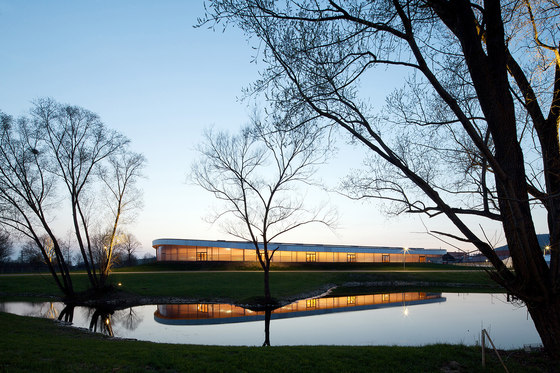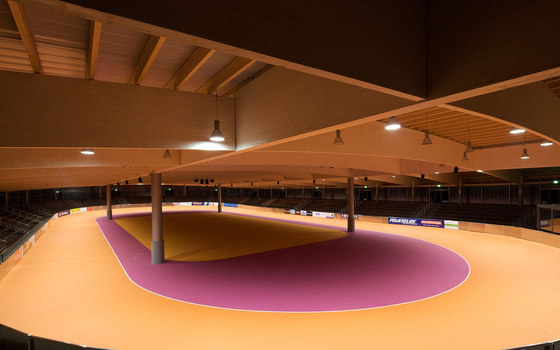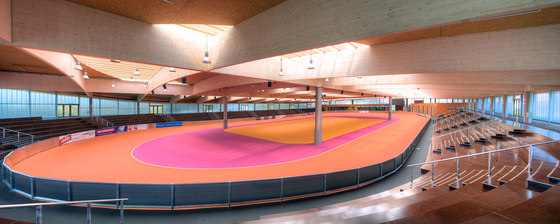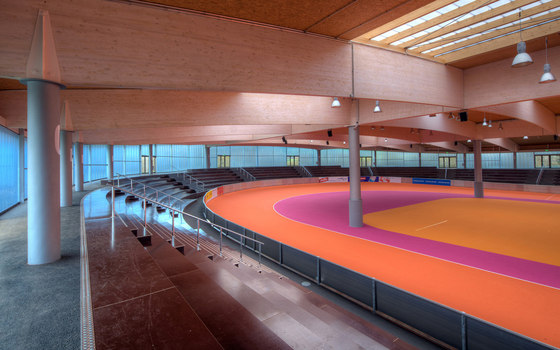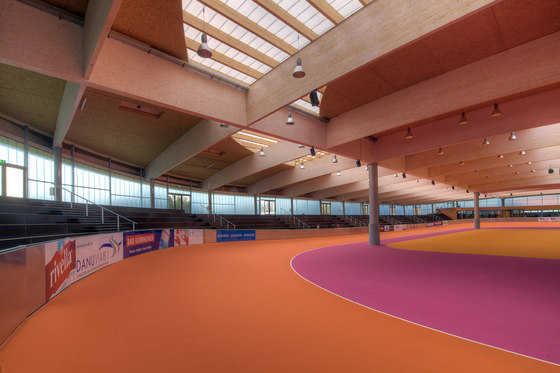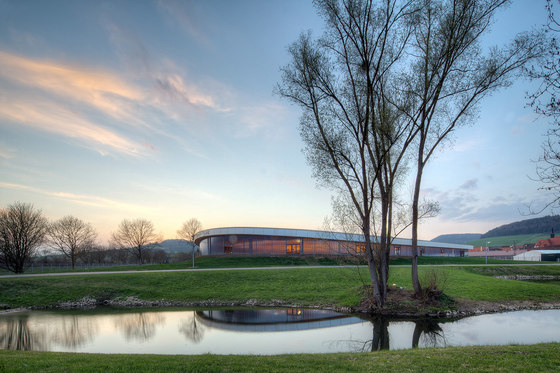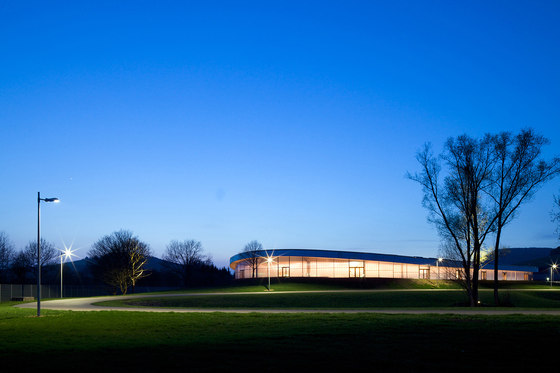The arena Geisingen is a private sponsorship project. Over a period of three years the Family Uhrig from Geisingen pursued the idea of building an Inline track in Geisingen. During the planning phase the concept developed from the original intention of building only ‘a track’, which was then developed as a concept into the to the arena Geisingen you see today which is unique not only in Germany but also Europe wide. The arena Geisingen is, situated on a floodplane of the river Donauwhich which entailed complex remodelling of the existing landscape.
In total 50,000 m³ of earth was modulated to form the arena tribunes, the oval racetrack with the banked corners and the infield area. Because of the close proximity to the Donau River the arena Geisingen is constructed in such a way that when the river floods there is no damage to the arena. The company Uhrig GmbH Geisingen was responsible for the entire construction of the arena, from the earthworks, groundwork, laying the foundations, creating the concept to prevent flooding, building the support for the roof, steel framing, installation of the substructure supporting the tribunes, construction of the roof, and building the complete infrastructure (sewerage system, drainage system).
The arena Geisingen was designed (preliminary design and details design) by the architectural firm SYRA_Schoyerer Architekten, from Mainz. Site supervision was taken over by the company Centraplan Architeken Planungsgesellschaft GmbH from Kirchzarten.
The light plan for the arena Geisingen and the traffic planning was developed by the company Generation Licht from Hemmenhofen. The areans lighting enables facilitates skating 24 hour a day. By night the arena Geisingen glows like a UFO against the Geisingen countryside. The translucent walls are almost weightless and surround the arena. The flat roof constructed with wood and the same weightless material as the sidewalls covers the entire arena.
The designer Monika Heiss set the sensational orange tone for the track and the radiant Magenta for the training track. These brilliant colours and the lighting concept create an exciting motivational atmosphere. It does not matter if the weather is bad, if it is a foggy day, or nightime, the atmosphere in the arena is always enjoyable. For the Bistro, Skateshop and the Service areas, the natural colour ochre was chosen.
Due preliminary design decisions and the careful selection of materials used in constructing the arena the energy demand is very low. The arena uses the warmth generated from the ground and the sun to heat the hall space. The translucent roof and walls trap the heat inside the arena which means in Winter the temperature inside the arena does not fall below 8°C, averaging 10°C. This is achieved without any energy expenditure! Only the Skateshop, the Bistro, and the Changing rooms are heated. The operating costs by comparison to other arenas are extreamly very low.
All areas including the Skateshop, Bistro, Changing rooms and shower areas and the top of the tribune areas (we have over 25% of the total area of the tribune is appropriate for wheelchairs) have easy access for wheelchairs. The complete infield, the race track (wheelchair allowed) and the entire outdoor facilities (including the parking areas) are barrier free and also have easy wheelchair access.
Both amateur and professional athletes, it has been said that the arena Geisingen is the fastest track in the world and it is resolutely recognised as the best training facility worldwide. The complete arena Geisingen including the street course extends over an area of 35,000 m².
SYRA_Schoyerer Architekten
Owner and Contractor: UHRIG Straßen - Tiefbau GmbH
Construction: Centraplan Architekten Planungs GmbH
Lightplan: Generation Licht, Christin Hess and Ferdinand Höllrigl Gbr
Colour design: Farbe & Design, Monika Heiss
